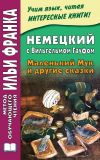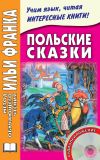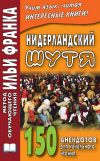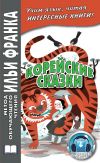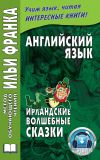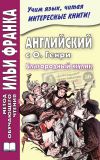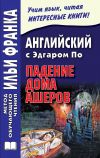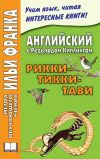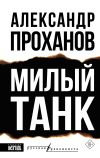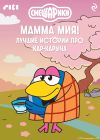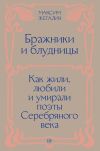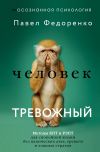Текст книги "Английский с Дэвидом Г. Лоуренсом. Тень в розовом саду / D. H. Lawrence. The Shadow in the Rose Garden"

Автор книги: Дэвид Лоуренс
Жанр: Иностранные языки, Наука и Образование
Возрастные ограничения: +16
сообщить о неприемлемом содержимом
Текущая страница: 3 (всего у книги 14 страниц) [доступный отрывок для чтения: 4 страниц]
“May I smoke?” he asked intimately, almost secretly (могу я закурить? – спросил он доверительно, почти шепотом; intimate – внутренний, глубинный; интимный; близкий, дружеский; secretly – тайно, втайне от других; скрытно; неслышно; secret – секрет, тайна), his hand going to his pocket (и его рука потянулась к карману).
She could not answer, but it did not matter, he was in another world (она не могла ответить, но это не имело значения, он был в другом мире). She wondered, craving, if he recognized her – if he could recognize her (она задавалась вопросом, страстно желая /знать/, узнал ли он ее – способен ли он узнать ее; to wonder – удивляться; интересоваться, желать знать; задаваться вопросом; to crave – страстно желать, жаждать). She sat pale with anguish (она сидела, бледная от страдания; anguish – мука, боль, страдание). But she had to go through it (но она должна была пройти через это).
“I haven’t got any tobacco,” he said thoughtfully (у меня нет табака, – сказал он задумчиво).

She was mute and helpless. He was scrupulously dressed in dark clothes and a linen coat. She could not move. Seeing his hands, with the ring she knew so well upon the little finger, she felt as if she were going dazed. The whole world was deranged. She sat unavailing. For his hands, her symbols of passionate love, filled her with horror as they rested now on his strong thighs.
“May I smoke?” he asked intimately, almost secretly, his hand going to his pocket.
She could not answer, but it did not matter, he was in another world. She wondered, craving, if he recognized her – if he could recognize her. She sat pale with anguish. But she had to go through it.
“I haven’t got any tobacco,” he said thoughtfully.
But she paid no heed to his words, only she attended to him (но она не обратила внимания на его слова, оно было приковано только к нему; to pay – платить; обращать /внимание/; to attend – посещать, присутствовать; уделять внимание /кому-л., чему-л./). Could he recognize her, or was it all gone (может он ее узнать или всё прошло; gone – пропащий, потерянный; ушедший; to go – идти, ходить; протекать, проходить; исчезать)? She sat still in a frozen kind of suspense (она сидела неподвижно, в ожидании).
“I smoke John Cotton (я курю «Джон Коттон»),” he said, “and I must economize with it, it is expensive (и должен экономно его использовать, он дорогой). You know, I’m not very well off while these lawsuits are going on (я, знаете ли/видите ли, не очень богат, пока идут эти тяжбы; well off – состоятельный, зажиточный; well – здоровый; хороший; зажиточный; lawsuit – судебный процесс; иск; тяжба; law – закон; suit – судебное дело; судебный процесс; to go on – идти дальше; продолжать; происходить, случаться; развиваться /о действии, процессе/).”
“No,” she said, and her heart was cold, her soul kept rigid (да, – сказала она, и сердце ее было холодно, душа пребывала в оцепенении; to keep – держать, хранить; сохранять, удерживать /состояние, положение/; пребывать /в каком-л. состоянии/; rigid – жесткий, негнущийся; неподвижный).
He moved, made a loose salute (он пошевелился, небрежно отдал честь; loose – свободный; несвязанный; неопределенный; небрежный), rose, and went away (поднялся и ушел; to rise – вставать, подниматься). She sat motionless (она сидела неподвижно; motionless – неподвижный, без движения; motion – движение). She could see his shape, the shape she had loved, with all her passion (она видела его фигуру, фигуру, которую /прежде/ любила со всей своей страстью; shape – форма, очертание; вид, образ; /физическая/ форма; фигура /обычно женская/): his compact, soldier’s head (его небольшую солдатскую голову; compact – компактный; soldier – солдат), his fine figure now slackened (его прекрасное тело, теперь ослабшее; fine – прекрасный, превосходный; тонкий; изящный; to slacken – замедлять/ся/; слабеть, становиться вялым; провисать /о веревке/; slack – вялый, неактивный; слабый; провисающий, ненатянутый /о веревке/; дряблый, вялый /о мышцах/). And it was not he (и это был не он). It only filled her with horror too difficult to know (это наполнило ее ужасом, слишком трудным, чтобы понять = невыразимым ужасом).

But she paid no heed to his words, only she attended to him. Could he recognize her, or was it all gone? She sat still in a frozen kind of suspense.
“I smoke John Cotton,” he said, “and I must economize with it, it is expensive. You know, I’m not very well off while these lawsuits are going on.”
“No,” she said, and her heart was cold, her soul kept rigid.
He moved, made a loose salute, rose, and went away. She sat motionless. She could see his shape, the shape she had loved, with all her passion: his compact, soldier’s head, his fine figure now slackened. And it was not he. It only filled her with horror too difficult to know.
Suddenly he came again, his hand in his jacket pocket (вдруг он снова пришел, держа руку в кармане пиджака; jacket – куртка; жакет; пиджак).
“Do you mind if I smoke?” he said (не возражаете, если я закурю? – спросил он; to mind – возражать, иметь /что-л./ против). “Perhaps I shall be able to see things more clearly (возможно, я смогу видеть вещи более ясно; to be able to – мочь, быть в состоянии /сделать что-л./; able – способный, обладающий способностью; clearly – отчетливо, ясно).”
He sat down beside her again, filling a pipe (он снова сел возле нее, набивая трубку; to fill – наполнять/ся/). She watched his hands with the fine strong fingers (она следила за его руками с красивыми сильными пальцами). They had always inclined to tremble slightly (они всегда были склонны слегка дрожать; to incline – наклонять/ся/; склонять/ся/; быть склонным /к чему-л./). It had surprised her, long ago, in such a healthy man (это ее удивляло, когда-то давно, в таком здоровом человеке; ago – тому назад). Now they moved inaccurately, and the tobacco hung raggedly out of the pipe (теперь они двигались неточно, и табак свисал неряшливо из трубки; accurate – точный, правильный; ragged – неровный, зазубренный; рваный; торчащий клочьями; rag – лоскут, тряпка; обрывок).
“I have legal business to attend to (у меня судебное дело, которым я должен заниматься; legal – правовой; судебный; business – дело, занятие; to attend – посещать; заботиться /о чем-л./; следить /за чем-л./). Legal affairs are always so uncertain (юридические дела всегда такие неопределенные; certain – точный, определенный, неизменный). I tell my solicitor exactly, precisely what I want (я точно, четко говорю своему адвокату, чего я хочу; solicitor – солиситор /адвокат, консультирующий клиентов; имеет право выступать в судах низшей инстанции/; precisely – точно, определенно), but I can never get it done (но никогда не могу добиться, чтобы это было исполнено; to get – доставать; получать; to get smth. done: «получить что-л. сделанным» – сделать что-л. /о действии, совершаемом кем-л. по желанию или указанию говорящего/).”
She sat and heard him talking (она сидела и слушала, как он говорит). But it was not he (но это был не он).

Suddenly he came again, his hand in his jacket pocket.
“Do you mind if I smoke?” he said. “Perhaps I shall be able to see things more clearly.”
He sat down beside her again, filling a pipe. She watched his hands with the fine strong fingers. They had always inclined to tremble slightly. It had surprised her, long ago, in such a healthy man. Now they moved inaccurately, and the tobacco hung raggedly out of the pipe.
“I have legal business to attend to. Legal affairs are always so uncertain. I tell my solicitor exactly, precisely what I want, but I can never get it done.”
She sat and heard him talking. But it was not he.
Yet those were the hands she had kissed (и всё же это были руки, которые она целовала), there were the glistening, strange black eyes that she had loved (блестящие, странные черные глаза, которые она любила; to glisten – блестеть, сверкать). Yet it was not he (и всё же это был не он). She sat motionless with horror and silence (она сидела неподвижно, в ужасе и молчании; silence – тишина; молчание). He dropped his tobacco pouch (он уронил кисет; pouch – сумка, мешочек), and groped for it on the ground (и искал его ощупью на земле). Yet she must wait if he would recognize her (однако она должна подождать, узнает ли он ее). Why could she not go (почему она не может уйти)! In a moment he rose (вскоре он поднялся; in a moment – вскоре; через минуту).
“I must go at once (я должен немедленно уйти; at once – сразу же, немедленно; once – один раз, однажды),” he said. “The owl is coming (сова приходит).” Then he added confidentially (затем он прибавил доверительно; to add – прибавлять, добавлять; confidentially – конфиденциально, по секрету): “His name isn’t really the owl, but I call him that (на самом деле его имя не сова, но я называю его так; to call – кричать; называть). I must go and see if he has come (я должен пойти посмотреть, не пришел ли он; to see – смотреть, видеть; выяснить).”
She rose too (она тоже поднялась). He stood before her, uncertain (он стоял перед ней в нерешительности; uncertain – неясный; неопределенный; нерешительный, колеблющийся). He was a handsome, soldierly fellow, and a lunatic (это был красивый мужчина с военной выправкой и сумасшедший; handsome – красивый /чаще о мужчине/; статный; soldierly – свойственный солдату; имеющий военную выправку; fellow – /разг./ человек, парень, малый). Her eyes searched him, and searched him, to see (ее глаза всматривались и всматривались в него, чтобы понять; to search – искать; обыскивать; внимательно рассматривать; изучать; to see – видеть; выяснить; понимать, сознавать) if he would recognize her, if she could discover him (узнает ли он ее, сможет ли она раскрыть его; to discover – делать открытие; обнаруживать, находить; раскрыть).

Yet those were the hands she had kissed, there were the glistening, strange black eyes that she had loved. Yet it was not he. She sat motionless with horror and silence. He dropped his tobacco pouch, and groped for it on the ground. Yet she must wait if he would recognize her. Why could she not go! In a moment he rose.
“I must go at once,” he said. “The owl is coming.” Then he added confidentially: “His name isn’t really the owl, but I call him that. I must go and see if he has come.”
She rose too. He stood before her, uncertain. He was a handsome, soldierly fellow, and a lunatic. Her eyes searched him, and searched him, to see if he would recognize her, if she could discover him.
“You don’t know me?” she asked, from the terror of her soul, standing alone (вы меня не знаете = не узнаёте? – спросила она, охваченная ужасом до глубины души: «из ужаса своей души», стоя одна; alone – один, одинокий).
He looked back at her quizzically (он обернулся и странно поглядел на нее; to look back – оглядываться; quizzically – шутливо, насмешливо; странно, чудаковато). She had to bear his eyes (ей пришлось выдержать его глаза; to bear – /пере/носить; выносить, выдерживать /боль, несчастье и т. д./). They gleamed on her, but with no intelligence (они поблескивали ей, но без разума; to gleam – светиться; мерцать; intelligence – ум, интеллект, рассудок). He was drawing nearer to her (он приближался к ней; to draw – тянуть/ся/, тащить/ся/; подтягивать/ся/; приближать/ся/; near – рядом, около; к /приближение к чему-л./).
“Yes, I do know you,” he said, fixed, intent, but mad (да, я действительно вас знаю, – сказал он, неподвижный, сосредоточенный, но безумный; fixed – неподвижный; неизменный; застывший /о взгляде, выражение лица/; to fix – устанавливать; прикреплять, закреплять; застывать; intent – полный решимости; сосредоточенный; пристальный; mad – сумасшедший, помешанный), drawing his face nearer hers (приближая свое лицо к ее /лицу/). Her horror was too great (ее ужас был слишком велик). The powerful lunatic was coming too near to her (сильный умалишенный подходил к ней слишком близко; powerful – сильный, мощный, могучий; power – сила, мощь).
A man approached, hastening (спеша, подошел какой-то человек; to approach – подходить, приближаться; haste – поспешность, торопливость; спешка).
“The garden isn’t open this morning (сад не открыт сегодня утром),” he said.

“You don’t know me?” she asked, from the terror of her soul, standing alone.
He looked back at her quizzically. She had to bear his eyes. They gleamed on her, but with no intelligence. He was drawing nearer to her.
“Yes, I do know you,” he said, fixed, intent, but mad, drawing his face nearer hers. Her horror was too great. The powerful lunatic was coming too near to her.
A man approached, hastening.
“The garden isn’t open this morning,” he said.
The deranged man stopped and looked at him (душевнобольной /человек/ остановился и посмотрел на него). The keeper went to the seat and picked up the tobacco pouch left lying there (санитар подошел к скамейке и подобрал кисет, оставленный там лежать; to leave – оставлять, забывать).
“Don’t leave your tobacco, sir (не забывайте ваш табак, сэр),” he said, taking it to the gentleman in the linen coat (сказал он, поднося его джентльмену в полотняном пиджаке; to take – брать; доставлять, относить, отвозить /кого-л., что-л. куда-л./).
“I was just asking this lady to stay to lunch,” the latter said politely (я как раз просил эту даму остаться на ленч, – вежливо сказал последний; lunch – ланч, ленч, второй завтрак /в 12–14 часов/; latter – более поздний; последний /из двух названных/). “She is a friend of mine (она мой друг).”
The woman turned and walked swiftly, blindly (женщина повернулась и быстро/стремительно пошла, ничего не видя; blindly – вслепую, как слепой; без оглядки; безрассудно; blind – слепой; не видящий, не замечающий), between the sunny roses, out of the garden (между залитыми солнцем розами прочь из сада), past the house with the blank, dark windows (мимо дома с пустыми темными окнами), through the sea-pebbled courtyard to the street (через усыпанный морской галькой двор /вышла/ на улицу). Hastening and blind (торопливо и ничего не замечая), she went forward without hesitating, not knowing whither (она шла вперед без колебаний, не зная куда; to hesitate – колебаться, сомневаться). Directly she came to the house she went upstairs (дойдя до дома, она тотчас поднялась наверх; directly – прямо; сразу, немедленно, вскоре), took off her hat, and sat down on the bed (сняла шляпу и села на кровать).

The deranged man stopped and looked at him. The keeper went to the seat and picked up the tobacco pouch left lying there.
“Don’t leave your tobacco, sir,” he said, taking it to the gentleman in the linen coat.
“I was just asking this lady to stay to lunch,” the latter said politely. “She is a friend of mine.”
The woman turned and walked swiftly, blindly, between the sunny roses, out of the garden, past the house with the blank, dark windows, through the sea-pebbled courtyard to the street. Hastening and blind, she went forward without hesitating, not knowing whither. Directly she came to the house she went upstairs, took off her hat, and sat down on the bed.
It was as if some membrane had been torn in two in her (как будто какая-то перепонка разорвалась надвое в ней; membrane – плева; перепонка; мембрана; to tear – рвать/ся/, разрывать/ся/; in two – надвое, пополам), so that she was not an entity that could think and feel (так, что она /больше/ не была организмом, способным думать и чувствовать; entity – бытие, существование; существо, организм). She sat staring across at the window (она сидела, уставившись в окно), where an ivy spray waved slowly up and down in the sea wind (где веточка плюща медленно качалась вверх и вниз на морском бризе; to wave – развеваться /о флаге/; качаться /о ветке/; wind – ветер). There was some of the uncanny luminousness of the sunlit sea in the air (в воздухе было что-то от жуткого сияния = воздух отсвечивал жутким сиянием залитого солнцем моря; uncanny – жуткий; сверхъестественный; luminous – светящийся; ярко освещенный). She sat perfectly still, without any being (она сидела совершенно неподвижно, безжизненно; being – жизнь, существование). She only felt she might be sick (только чувствовала, что, наверное, больна; sick – чувствующий тошноту; больной; испытывающий недомогание), and it might be blood that was loose in her torn entrails (и что это, наверное, кровь бурлит в ее разорванных внутренностях; loose – свободный; несвязанный; несдержанный). She sat perfectly still and passive (она сидела совершенно неподвижно и безучастно; passive – пассивный; бездеятельный; безразличный).
After a time she heard the hard tread of her husband on the floor below (через некоторое время она услышала тяжелую походку мужа на этаже внизу; tread – походка; поступь, шаги; floor – пол; этаж; below – внизу; ниже), and, without herself changing, she registered his movement (и, не изменившись, /стала/ следить за его передвижениями; to change – менять/ся/, изменять/ся/; to register – регистрировать/ся/; отмечать). She heard his rather disconsolate footsteps go out again (она услышала, как его довольно безрадостные шаги снова удалились из дома; disconsolate – неутешный, безутешный; мрачный, унылый; to console – утешать; footstep – шаг, поступь; звук шагов; foot – ступня; step – шаг), then his voice speaking, answering, growing cheery (потом /услыхала/ его голос, говоривший, отвечавший, становившийся веселым; cheery – веселый, живой; радостный; cheer – одобрительное или приветственное восклицание; веселье; оживление; радость), and his solid tread drawing near (и его приближающиеся твердые шаги; solid – твердый; сплошной, цельный; прочный, крепкий).

It was as if some membrane had been torn in two in her, so that she was not an entity that could think and feel. She sat staring across at the window, where an ivy spray waved slowly up and down in the sea wind. There was some of the uncanny luminousness of the sunlit sea in the air. She sat perfectly still, without any being. She only felt she might be sick, and it might be blood that was loose in her torn entrails. She sat perfectly still and passive.
After a time she heard the hard tread of her husband on the floor below, and, without herself changing, she registered his movement. She heard his rather disconsolate footsteps go out again, then his voice speaking, answering, growing cheery, and his solid tread drawing near.
He entered, ruddy, rather pleased (он вошел, цветущий, весьма довольный; ruddy – румяный; здоровый, цветущий), an air of complacency about his alert figure (с каким-то самодовольством в подвижной фигуре; air – воздух; вид, выражение лица; характер, манера; complacency – самодовольство; удовлетворенность; alert – бдительный, настороженный; живой, проворный). She moved stiffly (она неловко пошевелилась; stiff – жесткий, тугой; негибкий; одеревенелый). He faltered in his approach (он колебался в своем приближении = замер в нерешительности; to falter – спотыкаться; действовать нерешительно, колебаться).
“What’s the matter?” he asked a tinge of impatience in his voice (что случилось/в чем дело? – спросил он в с легким нетерпением в голосе; matter – вещество; дело, вопрос; tinge – оттенок, тон; примесь). “Aren’t you feeling well (тебе нехорошо: «ты не чувствуешь себя хорошо»)?”
This was torture to her (для нее это была пытка).
“Quite,” she replied (вполне /хорошо/, – ответила она).
His brown eyes became puzzled and angry (его карие глаза стали озадаченными и сердитыми; to puzzle – озадачивать; ставить в тупик; puzzle – вопрос, ставящий в тупик; загадка; головоломка /игрушка/).
“What is the matter?” he said (что случилось? – спросил он).
“Nothing (ничего).”
He took a few strides, and stood obstinately, looking out of the window (он сделал несколько больших шагов и упрямо остановился, глядя в окно).

He entered, ruddy, rather pleased, an air of complacency about his alert figure. She moved stiffly. He faltered in his approach.
“What’s the matter?” he asked a tinge of impatience in his voice. “Aren’t you feeling well?”
This was torture to her.
“Quite,” she replied.
His brown eyes became puzzled and angry.
“What is the matter?” he said.
“Nothing.”
He took a few strides, and stood obstinately, looking out of the window.
“Have you run up against anybody?” he asked (ты на кого-то наткнулась? – спросил он; to run – бегать, бежать; to run up against – натолкнуться, встретиться /с кем-л., чем-л./).
“Nobody who knows me,” she said (ни на кого, кто меня знает, – ответила она).
His hands began to twitch (его руки начали подергиваться; to twitch – дергать/ся/; подергивать/ся/). It exasperated him, that she was no more sensible of him than if he did not exist (его сердило, что она замечала его не больше, чем если бы он не существовал = не замечала его присутствия, как будто его вовсе не существовало; to exasperate – сердить, раздражать, выводить из себя; sensible – благоразумный; осознающий; чувствующий; sense – чувство; ощущение, восприятие). Turning on her at length, driven, he asked (обернувшись к ней наконец, взвинченный, он спросил; to drive – гнать; приводить в движение):
“Something has upset you, hasn’t it (что-то тебя расстроило, не так ли; to upset – опрокидывать/ся/; расстраивать, разрушать /порядок, планы/; огорчать; upset – опрокидывание /лодки и т. д./; крушение /планов и т. д./; огорчение)?”
“No, why?” she said neutral (нет, отчего же? – спросила она безразлично; neutral – нейтральный; безразличный, безучастный). He did not exist for her, except as an irritant (он для нее не существовал, только как раздражитель; except – исключая, кроме; as – как, в качестве).
His anger rose, filling the veins in his throat (его гнев возрос, наполняя = раздувая вены в горле).

“Have you run up against anybody?” he asked.
“Nobody who knows me,” she said.
His hands began to twitch. It exasperated him, that she was no more sensible of him than if he did not exist. Turning on her at length, driven, he asked:
“Something has upset you, hasn’t it?”
“No, why?” she said neutral. He did not exist for her, except as an irritant.
His anger rose, filling the veins in his throat.
“It seems like it,” he said, making an effort not to show his anger (похоже на то, – сказал он, делая усилие, чтобы не показать свой гнев; to seem – казаться, представляться), because there seemed no reason for it (потому что для него не виделось причин; reason – причина; основание, мотив). He went away downstairs (он ушел, спустившись по лестнице; stair – ступенька /лестницы/; stairs – лестница). She sat still on the bed, and with the residue of feeling left to her (она неподвижно сидела на кровати и остатком чувств, сохранившихся у нее; to leave – покидать, уезжать; оставлять; оставаться /в остатке/), she disliked him because he tormented her (она испытывала к нему неприязнь, потому что он ее терзал; to dislike – испытывать неприязнь, не любить; to torment – мучить, причинять боль). The time went by (время проходило). She could smell the dinner being served (она чувствовала запах подаваемого обеда; to smell – обонять; чувствовать запах; to serve – служить; накрывать на стол, подавать), the smoke of her husband’s pipe from the garden (дым трубки мужа из сада). But she could not move (но не могла пошевелиться). She had no being (в ней не было жизни). There was a tinkle of the bell (раздался звон колокольчика). She heard him come indoors (она услышала, как он вошел в дом; indoors – внутри дома, в помещении; door – дверь). And then he mounted the stairs again (а потом он снова поднимался по лестнице; to mount – подниматься, взбираться). At every step her heart grew tight in her (с каждым шагом сердце в ней сжималось: «становилось сжатым»; tight – тугой; тесный; сжатый, стиснутый). He opened the door (он открыл дверь).
“Dinner is on the table (обед на столе),” he said.

“It seems like it,” he said, making an effort not to show his anger, because there seemed no reason for it. He went away downstairs. She sat still on the bed, and with the residue of feeling left to her, she disliked him because he tormented her. The time went by. She could smell the dinner being served, the smoke of her husband’s pipe from the garden. But she could not move. She had no being. There was a tinkle of the bell. She heard him come indoors. And then he mounted the stairs again. At every step her heart grew tight in her. He opened the door.
“Dinner is on the table,” he said.
It was difficult for her to endure his presence (ей было трудно выносить его присутствие; to endure – вынести, вытерпеть; терпеть, переносить /страдания, неудобства и т. д./), for he would interfere with her (потому что он станет докучать ей; to interfere – мешать, быть помехой; докучать, надоедать /кому-л./). She could not recover her life (она не могла вернуться к жизни; to recover – вновь обретать, возвращать себе; оправляться /от болезни, потрясения и т. д./; выздоравливать). She rose stiffly and went down (она поднялась одеревенело и пошла вниз). She could neither eat nor talk during the meal (она не могла ни есть, ни говорить за обедом; during – в течение, во время; meal – прием пищи; еда). She sat absent, torn, without any being of her own (она сидела с отсутствующим видом, истерзанная, совершенно безжизненная: «без какой-либо собственной жизни»; absent – отсутствующий; рассеянный; to tear – рвать/ся/, разрывать/ся/; терзать, мучить; раздирать). He tried to go on as if nothing were the matter (он старался вести себя так, будто ничего не случилось; to go on – идти дальше; продолжать; вести себя). But at last he became silent with fury (но в конце концов он замолчал: «стал молчаливым» от ярости). As soon as it was possible, she went upstairs again (как только стало возможно, она снова поднялась наверх; as soon as – как только: «так скоро, как»; soon – скоро, вскоре), and locked the bedroom door (и заперла дверь спальни). She must be alone (ей нужно побыть одной). He went with his pipe into the garden (он вышел с трубкой в сад). All his suppressed anger against her who held herself superior to him (весь его подавленный гнев против нее, которая держалась выше его; to hold – держать; to hold oneself – держаться, вести себя; superior – высший /по должности, званию, социальному положению/; превосходящий) filled and blackened his heart (наполнил и очернил его сердце). Though he had not know it, yet he had never really won her, she had never loved him (хотя он не понимал этого прежде, однако он так никогда и не покорил ее, она никогда его не любила; to win – выиграть; победить; добиться, завоевать). She had taken him on sufferance (она вышла за него из милости; to take – брать; жениться; выходить замуж; sufferance – терпение, терпеливость; молчаливое согласие; on sufferance – с молчаливого согласия; из милости; to suffer – страдать; терпеть, переносить).

It was difficult for her to endure his presence, for he would interfere with her. She could not recover her life. She rose stiffly and went down. She could neither eat nor talk during the meal. She sat absent, torn, without any being of her own. He tried to go on as if nothing were the matter. But at last he became silent with fury. As soon as it was possible, she went upstairs again, and locked the bedroom door. She must be alone. He went with his pipe into the garden. All his suppressed anger against her who held herself superior to him filled and blackened his heart. Though he had not know it, yet he had never really won her, she had never loved him. She had taken him on sufferance.
This had foiled him (это сбило его с толку; to foil – /охот./ сбивать со следа /собаку/; одурачивать, ставить в тупик). He was only a labouring electrician in the mine, she was superior to him (он всего лишь электрик, работающий в шахте, она – выше его; to labour – работать, трудиться /тяжело/; labour – труд; mine – рудник; шахта). He had always given way to her (он всегда уступал ей; to give way – отступать, уступать; давать дорогу, пропускать). But all the while, the injury and ignominy had been working in his soul (но всё это время обида и унижение бурлили в его душе; while – время; промежуток времени; injury – рана, ушиб, травма; обида, оскорбление; ignominy – бесчестье, позор, унижение; to work – работать; действовать; метаться, бурлить, кипеть) because she did not hold him seriously (потому что она не принимала его всерьез). And now all his rage came up against her (и теперь поднялась вся его ярость по отношению к ней; to come up – подниматься, повышаться; усиливаться).
He turned and went indoors (он повернулся и вошел в дом). The third time, she heard him mounting the stairs (в третий раз она услышала, как он поднимается по лестнице; time – время; раз). Her heart stood still (ее сердце замерло; to stand – стоять; быть в каком-л. положении; to stand still – останавливаться; замирать; стоять смирно, неподвижно). He turned the catch and pushed the door – it was locked (он повернул ручку и толкнул дверь – она была заперта; catch – задвижка, защелка, щеколда). He tried it again, harder (он попробовал снова, сильнее). Her heart was standing still (ее сердце замирало).
“Have you fastened the door (ты заперла дверь; to fasten – связывать, скреплять; застегивать/ся/; запирать /на засов, защелку/)?” he asked quietly, because of the landlady (спросил он тихо, из-за хозяйки).
“Yes (да). Wait a minute (погоди минуту).”

This had foiled him. He was only a labouring electrician in the mine, she was superior to him. He had always given way to her. But all the while, the injury and ignominy had been working in his soul because she did not hold him seriously. And now all his rage came up against her.
He turned and went indoors. The third time, she heard him mounting the stairs. Her heart stood still. He turned the catch and pushed the door – it was locked. He tried it again, harder. Her heart was standing still.
“Have you fastened the door?” he asked quietly, because of the landlady.
“Yes. Wait a minute.”
She rose and turned the lock, afraid he would burst it (она встала и отперла замок, боясь, что он его сорвет; lock – замок; запор; затвор; to burst – взрывать/ся/; прорывать/ся/; вскрывать). She felt hatred towards him, because he did not leave her free (она ощущала ненависть к нему, потому что он не оставлял ее в покое; free – свободный, вольный). He entered, his pipe between his teeth (он вошел, держа трубку между зубов; tooth – зуб), and she returned to her old position on the bed (и она вернулась в свое прежнее положение на кровати; old – старый; прежний, бывший; position – положение; место; поза). He closed the door and stood with his back to it (он закрыл дверь и встал к ней спиной).

